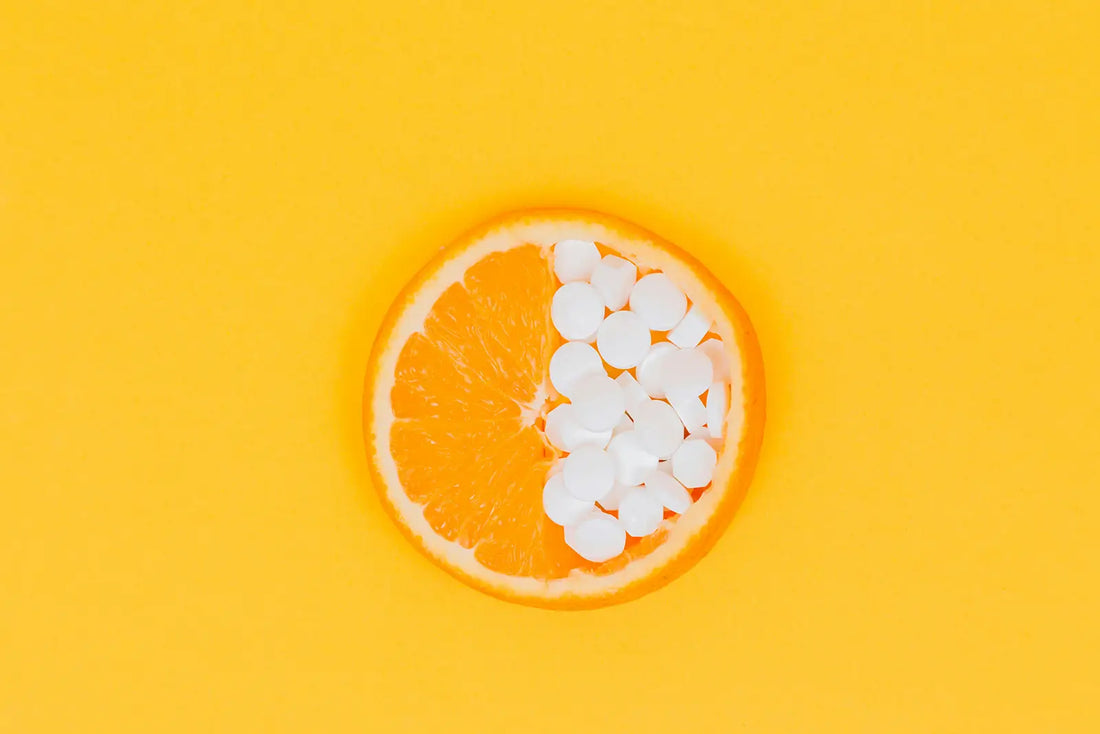
What are the BEST vitamins for Hangovers?
Share
Author: Nick Nowak, PharmD, BCPS
Finding the best Vitamins for Hangovers
Hangovers are unpleasant experiences that many individuals encounter after consuming alcohol excessively. Symptoms such as headache, nausea, fatigue, and dehydration can leave one feeling miserable and drained. While the best way to avoid a hangover is to drink in moderation, there are ways to alleviate its effects, including the consumption of certain vitamins and nutrients.
Vitamin B Complex
Vitamin B complex, which includes vitamins B1, B2, B3, B5, B6, B7, B9, and B12, plays a crucial role in energy metabolism and the functioning of the nervous system. These vitamins are depleted when alcohol is metabolized in the body, contributing to hangover symptoms. Incorporating foods rich in vitamin B or taking supplements can help replenish these nutrients and alleviate hangover symptoms.
Vitamin C
Vitamin C is known for its immune-boosting properties, but it also plays a role in hangover recovery. As an antioxidant, vitamin C helps neutralize free radicals produced during alcohol metabolism, reducing oxidative stress on the body. Citrus fruits, strawberries, kiwi, and supplements are excellent sources of vitamin C that can aid in hangover relief.
Magnesium
Magnesium is an essential mineral involved in numerous biochemical reactions in the body, including those related to energy production and muscle function. Alcohol consumption can deplete magnesium levels, leading to symptoms like muscle cramps and fatigue. Foods rich in magnesium, such as nuts, seeds, and leafy greens, as well as magnesium supplements, can help replenish this vital nutrient.
When it comes to supplements, Magnesium Oxide has the lowest absorption rate but helps ease the stomach, while Magnesium Glycinate offers the highest absorption into the body.
Zinc
Zinc is another mineral that may help alleviate hangover symptoms due to its role in immune function and alcohol metabolism. Foods like oysters, beef, and pumpkin seeds are high in zinc and can be beneficial for hangover recovery. However, excessive zinc supplementation should be avoided, as it can interfere with the absorption of other minerals.
Electrolytes
Alcohol consumption can lead to dehydration and electrolyte imbalances, contributing to hangover symptoms like headaches and fatigue. Replenishing electrolytes through beverages like sports drinks or coconut water can help restore hydration levels and alleviate these symptoms.
Antioxidants
Antioxidants are compounds that help protect the body from oxidative stress caused by free radicals. Consuming foods rich in antioxidants, such as berries, dark chocolate, and green tea, can help reduce inflammation and support hangover recovery.
Ginger
Ginger has long been used as a natural remedy for nausea and digestive issues. Consuming ginger tea or adding fresh ginger to meals can help alleviate stomach discomfort associated with hangovers.
Turmeric
Turmeric contains curcumin, a compound known for its anti-inflammatory properties. Incorporating turmeric into your diet or taking supplements may help reduce inflammation and alleviate hangover symptoms.
Milk Thistle
Milk thistle is an herb known for its liver-supporting properties. Taking milk thistle supplements before or after drinking alcohol may help protect the liver from damage and alleviate hangover symptoms.
Water
Hydration is essential for hangover recovery, as alcohol consumption can lead to dehydration. Drinking plenty of water before, during, and after drinking alcohol can help prevent or alleviate hangover symptoms.
Bananas
Bananas are rich in potassium, an electrolyte that can become depleted during alcohol consumption. Eating bananas or drinking banana smoothies can help replenish potassium levels and alleviate hangover symptoms.
Rest and Sleep
Rest is crucial for allowing the body to recover from the effects of alcohol. Getting adequate sleep after drinking can help alleviate fatigue and improve overall well-being.
Prevention Strategies
While there is no guaranteed way to prevent hangovers entirely, there are several strategies you can employ to reduce their severity. These include drinking in moderation, pacing yourself while drinking, eating a balanced meal before drinking, staying hydrated, and avoiding sugary alcoholic beverages.
How to mitigate hangovers
While hangovers can be uncomfortable, they are typically temporary and can be alleviated with the right strategies. Incorporating vitamins, minerals, and other nutrients into your diet, staying hydrated, and getting plenty of rest can help mitigate hangover symptoms and support overall well-being.
Hangover FAQs
Are hangovers dangerous?
Hangovers are typically not dangerous on their own, but they can indicate excessive alcohol consumption, which can have long-term health consequences.
Can vitamins prevent hangovers?
While vitamins can help alleviate hangover symptoms by replenishing depleted nutrients, they cannot completely prevent hangovers.
Is it better to take vitamins before or after drinking?
It's best to ensure you have a balanced diet and adequate nutrient intake regularly rather than relying solely on vitamins before or after drinking.
How long does a hangover usually last?
Hangover symptoms typically peak within a few hours after drinking and can last up to 24 hours or longer, depending on various factors such as the amount of alcohol consumed and individual tolerance levels.
What age experiences the worst hangovers?
29 years old, which is when some people act like they are 21 years old, but their body metabolism has started to shift.
About the Author: Nick Nowak is a Doctor of Pharmacy (PharmD) and Board Certified Pharmacotherapy Specialist (BCPS. Nick studied at the University of Health Sciences and Pharmacy in St. Louis, and led clinical inpatient teams for the United States Air Force.
Please note: Intended for educational and informative purposes only and not intended to serve as medical or professional advice. For medical attention or advice you should consult your physician or other health care professional.
